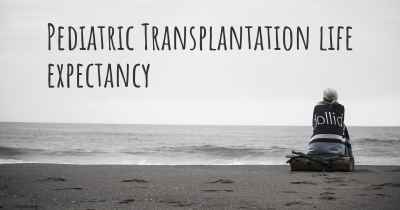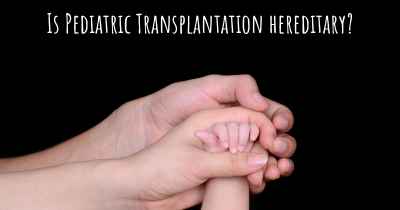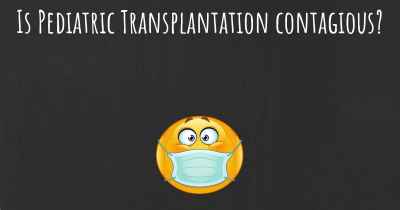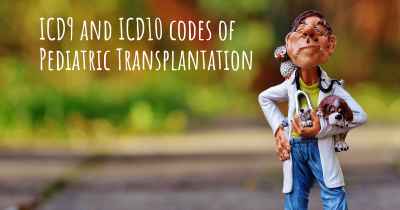What are the best treatments for Pediatric Transplantation?
See the best treatments for Pediatric Transplantation here

Best Treatments for Pediatric Transplantation
When it comes to pediatric transplantation, there are several treatments that have proven to be highly effective in improving the health and quality of life for young patients. These treatments aim to address the specific needs and challenges faced by children who require organ transplants. Here are some of the best treatments available:
1. Organ Transplantation
Organ transplantation is the primary treatment for pediatric patients with end-stage organ failure. This procedure involves replacing a failing organ with a healthy organ from a donor. The most common types of organ transplants in children include heart, liver, kidney, and lung transplants. The success of organ transplantation depends on various factors such as donor compatibility, surgical expertise, and post-transplant care.
2. Immunosuppressive Medications
Following organ transplantation, pediatric patients require immunosuppressive medications to prevent organ rejection. These medications suppress the immune system's response, allowing the transplanted organ to function properly without being attacked by the recipient's immune system. It is crucial for children to adhere to their medication regimen and undergo regular monitoring to ensure the right dosage and minimize side effects.
3. Rehabilitation and Physical Therapy
Rehabilitation plays a vital role in the recovery process for pediatric transplant recipients. Physical therapy helps children regain strength, mobility, and coordination after surgery. Rehabilitation programs are tailored to each child's specific needs and may include exercises, occupational therapy, and psychological support. These interventions aim to enhance the child's overall well-being and facilitate their reintegration into daily activities.
4. Supportive Care
Providing supportive care is essential for pediatric transplant patients and their families. This includes comprehensive medical and psychosocial support throughout the transplantation journey. Supportive care teams consist of healthcare professionals who specialize in pediatric transplantation and work closely with the child and their family to address any concerns, manage side effects, and ensure optimal recovery.
5. Ongoing Monitoring and Follow-up
Ongoing monitoring and regular follow-up appointments are crucial for pediatric transplant recipients. These appointments allow healthcare providers to assess the child's progress, monitor organ function, and detect any potential complications early on. Close monitoring helps ensure that appropriate interventions are implemented promptly, optimizing the long-term success of the transplant.
6. Research and Advancements
Continued research and advancements in the field of pediatric transplantation are vital for improving outcomes and expanding treatment options. Medical professionals and researchers are constantly working to develop new techniques, medications, and technologies that can enhance the success rates of pediatric transplants and minimize the associated risks.
In conclusion, the best treatments for pediatric transplantation involve a multidisciplinary approach that includes organ transplantation, immunosuppressive medications, rehabilitation, supportive care, ongoing monitoring, and research advancements. These treatments aim to provide children with a new lease on life, allowing them to thrive and grow despite the challenges they face.








